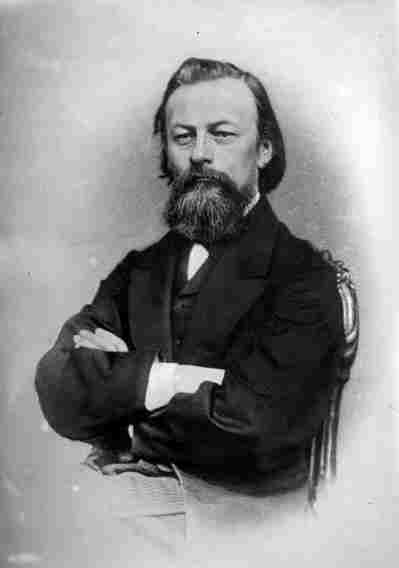<Back to Index>
- Chemist Antoine Francois, comte de Fourcroy, 1755
- Composer Nikolai Ivanovich Zaremba, 1821
- 1st President of Chad Ngarta Tombalbaye, 1918
PAGE SPONSOR

Nikolai Ivanovich Zaremba (15 June [O.S. 3 June] 1821 – 8 April [O.S. 27 March] 1879) was a Russian musical theorist and composer.
Zaremba was born in the province of Vitebsk in 1821. He was one of the original professors at the St. Petersburg Conservatory when it was founded in 1862. In 1867, he succeeded Anton Rubinstein as the director of the conservatory and held the post until 1871. He died in St. Petersburg in 1879. His most famous student at the conservatory was Pyotr Ilyich Tchaikovsky. Others included Vasily Safonov.
Zaremba's extreme conservatism colored both his teaching in general and what he expected from his students in particular. Along with Anton Rubinstein, and opposed to the forward looking tendencies of The Five, Zaremba remained suspicious, even hostile, to new trends in music. Instead, he attempted to preserve what they saw as the best in the Western tradition in the immediate past. Zaremba idolized Beethoven, particularly the late works, but his personal tastes had progressed no further than Mendelssohn. If anyone were to ask him about Hector Berlioz, Robert Schumann — or, closer to home, Mikhail Glinka — Zaremba would probably have had to admit to knowing nothing.
Tchaikovsky biographer David Brown writes that Zaremba's chief deficit was a complete lack of true inventiveness musically or of any other sort of imagination. Sticking to the composition handbook of his teacher, Adolph Bernhard Marx, Zaremba sent his students from there to study strict counterpoint and church modes as explained by Bellerman. Because of his lack of inventiveness, Zaremba's only way to improve a student's composition was to impose the straight and narrow rules of composition which he apparently learned so thoroughly himself.
Zaremba apparently had few, if any, creative energies of his own, having composed little and published nothing. He reportedly wrote at least one symphony, a quartet in the style of Joseph Haydn, and an oratorio entitled John the Baptist. For a professor of composition at a conservatory, this meagerness of output could be considered unusual.
This lack of compositional output may have contributed to the undistinguished opinion held generally about Zaremba — a viewpoint Tchaikovsky shared ultimately as well. Since Zaremba was the one who encouraged Tchaikovsky initially to apply himself more seriously in his musical studies — telling him, among other things, that he had unquestionable talent — and pushed him to work industriously, such a lack of compositional effort on Zaremba's part might have been doubly perplexing to Tchaikovsky.